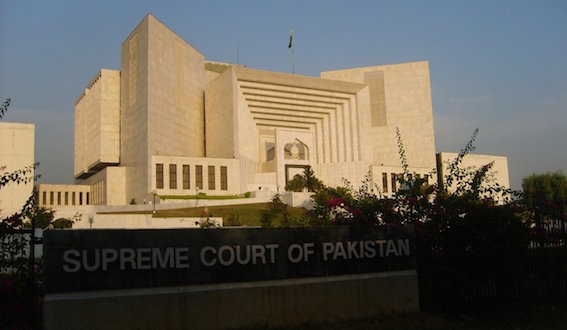In a significant development, the Supreme Court of Pakistan, led by an eight-member bench, ordered on Thursday that the Supreme Court (Practice and Procedure) Bill 2023 would not be acted upon in any way until further notice, even if it received presidential assent. The bench, headed by Chief Justice Umar Ata Bandial, issued an eight-page ruling on three petitions challenging the bill.
The interim order stated that when the bill receives the president’s assent or is deemed given, the resulting Act shall not take effect or be acted upon until further orders. The bench observed that the facts and circumstances presented were extraordinary, both in import and effect.
The Supreme Court (Practice and Procedure) Bill 2023 has stirred controversy in Pakistan as it seeks to limit the Chief Justice of Pakistan’s (CJP) powers to an individual capacity. As a result, the eight-member bench of the Supreme Court, led by Chief Justice Umar Ata Bandial, issued an interim order stating that even if the bill received presidential permission, it would not be acted upon until further notice.
The bill has faced opposition from various quarters, with three petitions challenging its constitutionality. In the interim order, the bench expressed that the facts and circumstances surrounding the bill were extraordinary, both in import and effect. The bench argued that there is substantial, immediate, and direct interference with the independence of the judiciary in the form of multiple intrusions in the guise of regulating the court’s practice and procedure.
Read: SC Hears Petitions Against Bill Limiting Chief Justice’s Power, Issues Notices
The Supreme Court (Practice and Procedure) Bill 2023 aims to delegate the power of taking suo motu notice, which currently rests with the CJP, to a three-member committee of senior judges, including the chief justice. The bill also seeks to introduce transparent proceedings in the apex court and includes the right to appeal.
The ruling alliance has strongly criticized the Supreme Court’s interim order, calling it a “murder of justice and reputation of the Supreme Court.” The Pakistan Democratic Movement (PDM)-led government described the order as an “outcome of the one-man show” and pledged to resist the “judicial injustice.” The ruling parties also vowed to devise a strategy for reforming the judicial system.
Read: Pakistan Supreme Court Defines ‘Obscene’ and ‘Vulgar’ Material in Landmark Ruling
The bill has generated considerable debate and discussion in Pakistan, as it could potentially impact the balance of power between the judiciary, the executive, and the legislative branches of the government. Moreover, the Supreme Court’s decision to suspend the bill’s implementation pending further orders highlights the judiciary’s concern about the possible consequences of the legislation on its independence and functioning.






